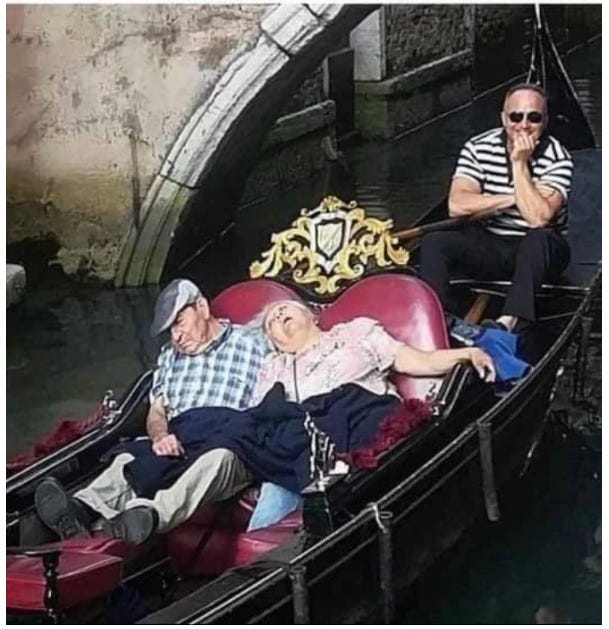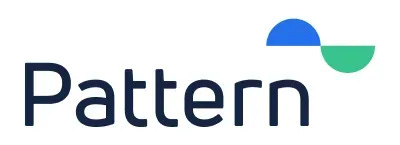In 2007, Marc Andreessen wrote a blog post titled “How to hire a professional CEO.” The post was short. Here it goes in full: Don’t. If you don’t have anyone on your founding team capable of being CEO, sell your company—now. A few years later, Ben Horowitz (Marc’s cofounder at Andreessen Horowitz) wrote in a bit more detail 😉 about why they prefer to fund companies with founder CEOs. I hope you enjoy today’s founder-focused newsletter.

This newsletter is sponsored by Pattern
Pattern, the global InsurTech MGA, empowers online travel, recreation, ticketing, and events companies to integrate innovative insurance offerings effortlessly. Our comprehensive protection portfolio tackles risks such as travel disruptions, cancellation, changes of plans, inclement weather, and medical assistance. In today's travel landscape, flexible cancellation options are paramount, with 78% of travelers deeming it essential for future trips (Tripadvisor, 2022). By partnering with Pattern, you can meet customer demand and provide relevant, personalized ancillary products.
Discover how Pattern can quickly enable you to deploy embedded insurance solutions in your booking pathway. We'd like to help you offer peace of mind and protection at every step of your customer's journey. Drop us a line info@patterninsurance.com
To learn more, visit www.patterninsurance.com.
Thanks for giving some ❤️ to the Travel Tech Essentialist sponsors (such as this week’s sponsor, Pattern) by clicking on their links and learning more about what they offer.
0. The most clicked link in the previous newsletter
The most clicked link in Travel Tech Essentialist #116 was Andy Raskin’s post on the greatest sales deck he’s ever seen and what makes it great.
1. Investing in founders
Prateek Sanjay wrote on LinkedIn an insight he got from Max Niederhofer (Partner at Heartcore Capital, whose portfolio companies include GetYourGuide and TravelPerk):
$0-$1 million ARR: Investing in the founder, not in the business
$1-$2 million ARR: Investing in the founder, not in the business
$2-$3 million ARR: Investing in the founder, not in the business
$3-$4 million ARR: Investing in the founder, not in the business
$4-$5 million ARR: Investing in the founder, not in the business
$5-$6 million ARR: Investing in the founder, not in the business
$6-$7 million ARR: Investing in the founder, not in the business
$7-$8 million ARR: Investing in the founder, not in the business
$8-$9 million ARR: Investing in the founder, not in the business
$9-$10 million ARR: Investing in the founder, not in the business
$10 million + ARR: Investing in the business, not in the founder
A business is considered ultra-high risk until it reaches 8-figure revenue. Then it is merely high risk. Ultra-high-risk businesses have no business plans. They just have a founder. VCs who return the fund read the founder. VCs who go back to day jobs read pitch decks.
2. Due Diligence checklist for pre-seed companies is focused on founders
Charles Hudson, Partner at Precursor Ventures, wrote a short post outlining the key questions they ask every prospective pre-seed investment. Unlike more mature companies, there is less data to analyze, so most of the diligence focuses on the company founders and key people. Read +.
3. Using fintech to grow travel bookings
Hopper has acquired 100 million mobile users by offering consumer-friendly financial products and a gamified app experience. In this interview with McKinsey’s Jean-Philippe De Montigny, Hopper founder and CEO Frederic Lalonde talks about consumer psychology, the power of gamification and social commerce, and the trade-offs involved in targeting younger travelers. Some highlights:
Almost half of Hopper customers attach a financial product to a transaction. On average, they buy one-and-a-half financial products.
Hopper gives users $20 in credit for showing up to the app. About 700,000 people have claimed between $10 and $20 in credit, and they are ten times more likely to book a trip if they start this process.
70% of Hopper customers are either in Gen Z or the younger tranche of millennials.
Customers, on average, spend an extra $40 per booking on financial products.
Hopper Cloud (Hopper’s fintech products offered to other travel companies) was launched in 2021 and now provides 50% of Hopper’s global revenue, with a growth rate in the high triple digits.
4. From newspaper delivery boy to airline CEO
Ben Baldanza, the ex-CEO of Spirit Airlines, turned the airline into the most profitable in North America. In a Forbes article, he shared insights from his 6-year experience (starting at age 12) delivering newspapers in his hometown and how those lessons shaped his approach as an airline CEO. Read +.
5. Travel investors reveal the top mistakes founders make when pitching VCs
Gilad Berenstein (founder at Brook Bay Capital) wrote about a panel held at Virtuoso’s Travel Tech Summit with a prominent group of travel and hospitality investors. In the final lightning round question, the investors were asked: what is a common mistake founders make when pitching a potential investor that drives you mad?
Their summarized answers (read Gilad’s post here):
Chantal Noble Haldorsen of Certares: when founders say they have no competition. There is always competition (“doing nothing” is a very powerful competitor), and if no one else is trying to solve this problem, maybe there is no big problem to be solved.
Cara Whitehill of Unlock Advisors: founders who come in without any plausible business models in mind.
Chris Hemmeter of Thayer Ventures: argumentative founders. Great founders need to be both determined and resolute in their vision but, at the same time, open-minded and coachable. That balance is what most investors look for in a founder.
Gaurav Tuli of F-Prime: when a founder comes in focused on how much value they can capture. Instead, founders should be narrowly focused on how much value they can create in the first place.
6. Reducing founder burnout
Jason M. Lemkin is the founder of SaaStr, the world's largest community for B2B/SaaS founders, and runs SaaStr Fund, a $90m VC focused on early-stage investments. Founder burnout is not usually a big risk in the early days, but as time passes, it becomes a very high risk. Jason wrote a post with his top 10 suggestions to avoid long-term burnout. Here are three of them:
Hire a COO. This is a quirky, odd hire, but try to do it anyway if you can find someone great, even as early as $5m ARR. Find someone that can own 20%–40% of the company’s operations.
Raise a few extra bucks. If you are venture-backed, raise 20% more than you planned. This will destress your life a lot IF you don’t increase your burn rate or spend it.
Focus on happy customers. Many things are hard, but everyone can improve customer happiness. High churn is very stressful in the long run (although it doesn’t feel that way in the short term). Any startup can drive up its NPS. This always works.
Read + on his 10 tips to avoid founder burnout.
7. A living room image on Airbnb could be worth a 35% increase in conversion
Thomas McKinley shared a study by researchers from the University of Texas and Virginia Tech that investigates the impact on the booking rate of content features (such as living room, bedroom, and interior design) and aesthetic features (including clarity, brightness, and contrast) of Airbnb listing background images (the images displayed in search results). The results show that having a background image that features the living room and shows more interior design elements increases the booking rate by 35% while featuring a bedroom decreases it. Thomas attributes this to the fact that bedroom images evoke thoughts of other guests utilizing the personal space, which can be off-putting. Read + International Journal of Research in Marketing

8. A founder’s different approach to company values
Josh Miller, the founder of The Browser Company, finds traditional corporate values empty and overly prescriptive. In response, he took a different approach by writing an essay called "Notes on Road Trips" that embodies the company's values in a more personal and relatable way. This involved interviewing each employee to gather their input and dedicating three months to crafting the essay. The outcome is a manual that truly represents the operational philosophy of The Browser Company, emphasizing individuality and exploration, similar to the experience of going on a road trip. These distinctive values not only shape the company's culture but also enhance its ability to attract top talent.
9. Why you shouldn’t wait until retirement to start traveling

10. Fundraising
Onfly, a Brazilian corporate travel and expense management startup, closed a $16 million Series A.
London-based experiences technology startup Beyonk raised a $5.8 million round.
Trip Affiliates Network raised $4.5 million in Series A funding to accelerate adoption of its B2B direct booking and online travel services across Asia.
Travel Investor Network
Travel Investor Network is a private platform launched by Travel Tech Essentialist for investors (VCs, Corporates, Family Offices, Angels) and innovators in travel, hospitality, and mobility.
→ If you are a startup looking to raise a round (from pre-seed to Series D), maybe I can help (for free). Please start by completing this form.
→ If you are an investor interested in joining the Travel Investor Network, please complete this form.
Talent Network
The Travel Tech Essentialist talent network has companies across the travel tech landscape that are currently hiring.
→If you’re a candidate looking for new opportunities, apply here to join at no cost to you and get introduced to hiring companies.
→If you’re a company looking to hire, request access to meet world-class candidates open to new opportunities. I send out a new drop every two weeks.
If you like Travel Tech Essentialist, please consider sharing it with your friends or colleagues and hitting the heart button up top (it helps more readers discover it):
If you’re not yet subscribed, you can do so here:
Thanks for trusting me with your inbox,
Mauricio




Great to read the Deliotte Summer Research and see travel in a healthy place despite financial challenges globally.